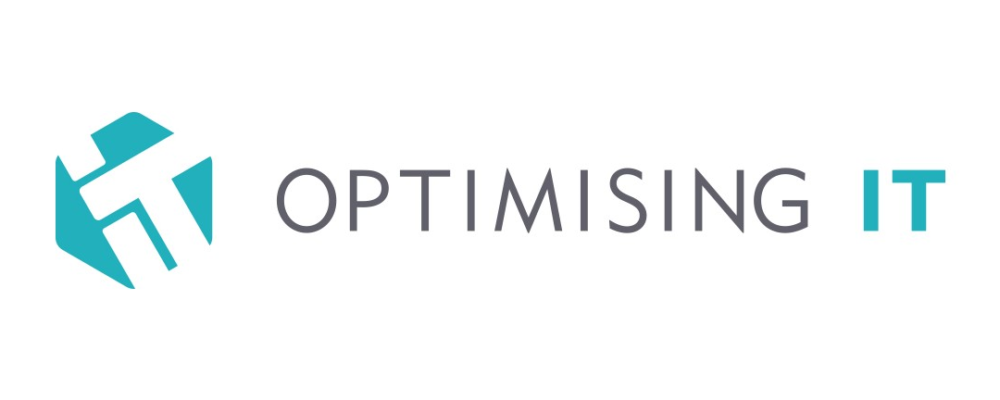
The risk of data loss is more prevalent now than ever before. Cybersecurity threats lurk around every corner, not to mention physical threats to your office and primary data storage servers. With this, many companies of all sizes are prioritising data protection and recovery. Thankfully, cloud backups make it easier than ever to protect your sensitive data and retrieve it if disaster strikes. These flexible and cost-effective systems are a fantastic solution for many businesses. But what is cloud backup, and how can it help your organisation? Read on to find out!
What Is Cloud Backup?
Cloud backup is a virtual data backup method used to store and protect sensitive information. The data is copied and then stored in an off-site server managed by a third-party service provider. The service provider charges a fee for using the cloud server based on storage space, data transmission bandwidth, number of users, and number of servers.
Many organisations prefer cloud backup services because of the advanced security, cost-effectiveness, and increased accessibility of their data. Using cloud backup can help a company improve its data security, all while making the workload more straightforward for its IT team. You can even work with an IT services provider who can help you create the right cloud backup plan, manage recurrent backups, and ensure your data remains secure and available whenever you need it.
What Is the Cloud?
Let’s take a small step back; what do we mean when referring to “the cloud”? Essentially, the cloud (also called cloud computing) is a general phrase used to describe a shared pool of resources and services provided over the Internet. You can use these cloud services to store, process, and manage data. Unlike regular web hosting, service providers sell cloud services in a flexible, on-demand manner so customers can use as much or little of a service as needed.
What’s Cloud Storage?
While the terms cloud storage and cloud backup are often used interchangeably, the two phrases describe totally different concepts. Cloud storage is a method of storing data on a remote cloud server. You can access and manage the data using the Internet. With cloud storage, your data is secure and easy to access from anywhere.
Types of Cloud Storage
There are three main types of cloud storage suited for different kinds of organisations and data.
- Public Cloud: This kind of storage caters to a variety of individual users and organisations. It’s best for storing less sensitive and unstructured data. Some popular public cloud storage providers include Microsoft Azure, Amazon Web Services, and Google Cloud.
- Private Cloud: This type of cloud storage is used privately by a single organisation and is managed by an in-house IT team or a third-party provider. Private clouds provide advanced security, customisation, and complete data control.
- Hybrid Cloud: Hybrid storage uses both public and private clouds to create a comprehensive data storage system. More sensitive data is sent to the private cloud, and less sensitive info is transferred to the public cloud. This is a cost-effective option that offers the best of both worlds.
Cloud Backup vs Cloud Storage
How is cloud storage different from cloud backup? Cloud backup refers specifically to the act of backing up data to the cloud. A copy of an organisation’s data is sent to an off-site server where it can be accessed when needed. Cloud backup continues to monitor your tech systems for changes and updates the backup copy accordingly. This service ensures that vital data and IT systems can be restored if disaster strikes.
Cloud storage more often refers to general data storage that’s used on a day-to-day basis. Users can access this data via the Internet no matter where they are. Cloud storage is typically used in addition to an organisation’s main physical storage system. The cloud exists separately from the primary system, so changes made to the original copy of a file will not alter the cloud-based document. Additionally, cloud storage itself should be backed up regularly.
How Does Cloud Backup Work?
Backing up data to the cloud is a process that involves copying and transferring digital files from your physical site to a virtual one. Once it’s in the cloud, the data can be accessed remotely via the Internet if it’s needed. The cloud backup process is fairly simple, especially if you work with a skilled IT services provider like Optimising IT. They can help you find the best cloud backup option, solidify all the details of your backup and recovery plan, and handle the continued maintenance of your backups.
In general, you can backup your data to the cloud following these three basic steps.
- Purchase your cloud backup service from a trusted provider.
- Install the necessary software on your organisation’s IT system.
- Choose the files and applications you want to backup.
After configuring your cloud backup, you can start securely transferring your data. Most cloud backup providers let their customers schedule routine backups, access stored files, control the bandwidth, and add new data. Maintaining the cloud backup system requires little to no work for your company.
Cloud Backup Methods
Cloud backup providers can use a few different methods to backup data. Learn about the specifics of each backup technique so you can find a provider that offers the best approach for your needs.
- Full Backups: A full backup copies the whole dataset whenever a backup is started. This method is the most time-consuming and eats up the most storage space. However, it also provides the highest degree of protection.
- Incremental Backups: Incremental backups only back up data that has been updated since the last backup. This is the most common backup method as it requires the fewest resources to perform. It can save space and time, but it can also make it a bit more challenging to perform a complete restoration.
- Differential Backups: Similar to incremental backups, differential backups only copy data that has changed. However, the backup includes all the data that has been altered since the last full backup. This technique makes it easier to restore data without the issues caused by incremental backups.
How Is Data Recovered?
What happens when you need to retrieve your data from the cloud? Cloud backup services use software to backup and manage company files. Should something happen to your data, you can use the same software to restore data from a previous cloud backup. You have the option to restore the full backup or select which specific files and folders you need to replace. And this is where cloud backups can really shine; cloud backups can restore data from anywhere and to any device. If, for example, your current data centre becomes damaged and rendered unusable, your company could restore the data directly to a disaster recovery site in an alternate location.
Why Is It Important to Backup Data?
Digital data faces all sorts of threats these days. Hardware can fail. Ransomware and malware can corrupt and destroy files. Even floods, fires, and other building damage can cause physical harm to on-site servers. Data loss, theft, and destruction can occur in any number of ways, resulting in security breaches, loss of business, and worse. And while many data threats are beyond your control, you can take steps today to protect your files and prevent a costly accident from becoming even worse.
With regular cloud backups, your data can never truly be lost. The service makes it easy to recover your files quickly so you can continue seamless operations, even during an emergency. Backing up data provides essential peace of mind, too. You won’t need to worry about the harmful impact data loss and downtime can have on your company’s revenue, productivity, and reputation. Instead, you can rest easy knowing that your data is safe and easy to restore if necessary.
Benefits and Drawbacks of Backing Up Data to the Cloud
As with any kind of backup service, there are pros and cons to using a cloud-based system for your business. Before deciding whether or not this service is right for you, it’s essential to weigh the benefits and drawbacks. Here are a few factors to keep in mind.
Advantages of Cloud Backup
- Secure: Backing up your data is essential to protecting it, and cloud backup is one of the safest options. The advanced security of an off-site cloud network can guard your data against cyber threats like ransomware and environmental hazards like building damage. Many cloud backup providers also offer management, monitoring, and reporting services to ensure your data’s safety.
- Scalable: Companies can store as much or as little data in the cloud as they need without worrying about running out of space or needing to buy new equipment.
- Accessible: Because the data is not tied to a specific location, you can access your cloud storage anywhere. All you need is an internet connection.
- Cost-Effective: On-site servers can be challenging and expensive to maintain. Many companies can save money by switching to a cloud-based storage solution, especially for small-to-medium-sized businesses that don’t have an excess of data.
- Minimal Effort: Once your cloud backup service is set up, it takes minimal effort to maintain. You can schedule automatic backups to keep your data up-to-date and even work with an IT service provider to manage the entire process.
Disadvantages of Cloud Backup
- Speed: Backup speeds depend on bandwidth and latency. If there is a poor network connection, the backup may be slower, causing frustrations during both backup and recovery. The process can also slow down network speeds, interrupting business operations. Make sure you have sufficient bandwidth for a quick and seamless data transfer and try to time your backup for off-hours.
- Less Control: Cloud backups use third-party service providers, which can be stressful for some organisations as it makes them feel like they’re losing control of their data. However, just because the data isn’t stored under your own roof doesn’t mean it’s less secure. It just means that you have to take your time to find a top-notch service provider that you can trust.
- Costs Increase with More Data: While cloud backups can be a cost-effective option, those prices can add up quickly the more data you have. Consider how much information you need to backup and whether the extra costs are feasible for your company.
Cloud Backup Services from Optimising IT
At Optimising IT, we offer a range of cloud-based backup, recovery, and replication services. Our systems also use automation to maintain a regular backup schedule and ensure all your backup data is as accurate and up-to-date as possible. All of our cloud backup services are custom-tailored to suit your unique business need, too. We will work with you to learn more about your data security needs and design a suitable and scalable backup solution.
Cloud Backup Services
These are a few of the cloud backup services we provide at Optimising IT:
- Office 365 Backup: We use an ISO27001-certified cloud backup platform to backup your OneDrive, Sharepoint, Teams, and Microsoft 365 data.
- Microsoft Azure Backup: We can also backup complete Windows-based systems, including local software.
- Other Cloud Backup Services: We also offer cloud backup for Google workspace, Salesforce, Dropbox, Box, and other cloud services.
- Cloud Server Backup: While we use a different software suite for server backups, our skilled staff can absolutely backup your cloud servers in Microsoft Azure or Amazon Web Services (AWS).
How Our Services Work
The process starts with a conversation. An expert team member will reach out to discuss your company’s current and future needs. Then, we’ll create a fully scalable and bespoke solution for backing up your data. Next, our professionals will visit your office or, for remote companies, access your virtual systems to identify all of the crucial data. From there, we can begin backing up the local data saved on on-site servers and online data, documents, and emails to the cloud. The cloud data is securely stored and archived on top-quality cloud platforms, where you can access it whenever you need it.
If you’d like to learn more about Optimising IT services for cloud backup in the UK, contact us to discuss how we can protect your business’s data and your future.













